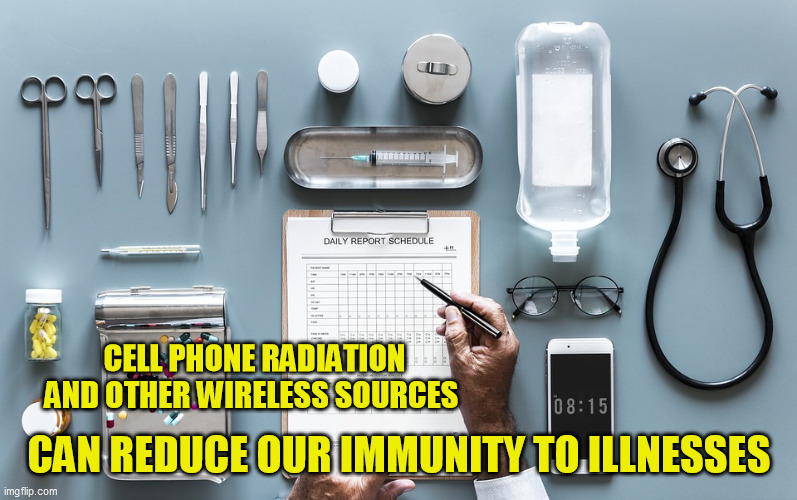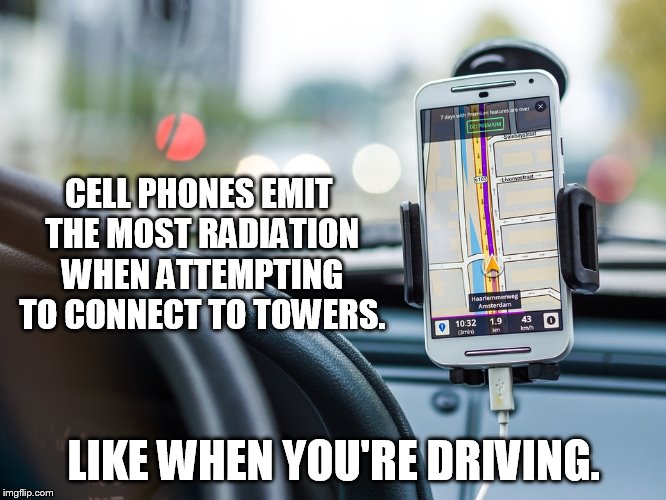
By B.N. Frank
Did you know that manufacturers are required to provide warnings about radiation exposure risks associated with cell phones and other wireless devices? In fact, decades of research has already revealed that exposure to electromagnetic fields (EMF) from cell phones and other wireless sources is biologically harmful. While some government agencies have been warning citizens about cell phone radiation exposure risks, others have not. Meanwhile, new research continues to be published confirming health risks from cell phone radiation exposure (see 1, 2, 3) including this paper.
From Environmental Health Trust:
Contents
Mobile Phone Use Associated With New-Onset Chronic Kidney Diseases
Mobile Phone Use, Genetic Susceptibility and New-Onset Chronic Kidney Diseases published in the International Journal of Public Health found mobile phone use significantly associated with a higher risk of new-onset new-Onset chronic kidney diseases (CKD) especially in those with longer weekly usage time of mobile phones making or receiving calls (Zhang et al 2023).
Excerpts from the paper
In recent years, one phenomenon worthy of our attention is the sharp increase in the number of mobile phone users around the world, with an estimated 8.2 billion subscriptions worldwide in 2020 (3). This raises the question of whether it is completely safe to make and receive calls on mobile phones, and whether there may be possible adverse health effects, especially among heavy mobile phone users. In fact, a high frequency of mobile phone use had been reported to be associated with depression symptoms, stress and sleep disturbances (4–6), all of which were related to a higher risk of CKD (7, 8). Moreover, a number of studies in animal or human cells had suggested that chronic exposure to radiofrequency electromagnetic field (RF-EMF) radiation emitted by mobile phones may increase oxidative stress, inflammatory responses and DNA damage (9, 10), and thus contribute to the pathogenesis of CKD (11–14). Accordingly, some studies in mice had found increased blood creatinine concentrations after EMF exposure of mobile phones (15, 16). As such, we speculated that mobile phone users may have a higher risk of incident CKD.
We first found that there was a positive relationship between weekly usage time of mobile phones making or receiving calls and new-onset CKD. Our findings are biologically plausible. First, forearm lifting and static holding of the phone, a typical position for making and receiving calls, may increase sympathetic activity (28, 29) and lead to short-term increases in plasma adrenomedullin levels (30), thereby promoting myocardial contractility, resulting in systemic vasoconstriction and increased blood pressure, which was related to an increased risk of CKD. Second, a high frequency of mobile phone use was associated with depression symptoms, stress and sleep disturbances (4–6), all of which have been reported to be related to a higher risk of CKD (7, 8). However, further adjustments for healthy sleep scores, self-reported depression, and total mental health complaints did not substantially change our findings, suggesting that these factors also did not fully explain the association between weekly usage time of mobile phones making or receiving calls and new-onset CKD. Third, some previous studies have shown that the RF-EMF radiation of mobile phone use can cause a number of harmful effects at the molecular and cellular levels, including oxidative stress, inflammation and DNA damage (9, 10), and thus contribute to the development of CKD (6–8). Consistently, several studies in mice had reported that EMF exposure of mobile phones significantly increased serum creatinine concentrations (15, 16) and led to the kidney interstitial inflammation that caused marked mononuclear cellular infiltration (15).
In summary, mobile phone use was significantly associated with a higher risk of new-onset CKD, especially in those with longer weekly usage time of mobile phones making or receiving calls, among the general population. Of note, there is no established biological mechanism for the results. Our findings and the underlying mechanisms should be further investigated in more studies. If further confirmed, our study highlights the importance of reducing usage time of mobile phones making or receiving calls for primary prevention of CKD in the general population.
Activist Post is Google-Free
Support us for just $1 per month at Patreon or SubscribeStar

Activist Post reports regularly about cell phones and other unsafe technologies. For more information, visit our archives and the following websites:
